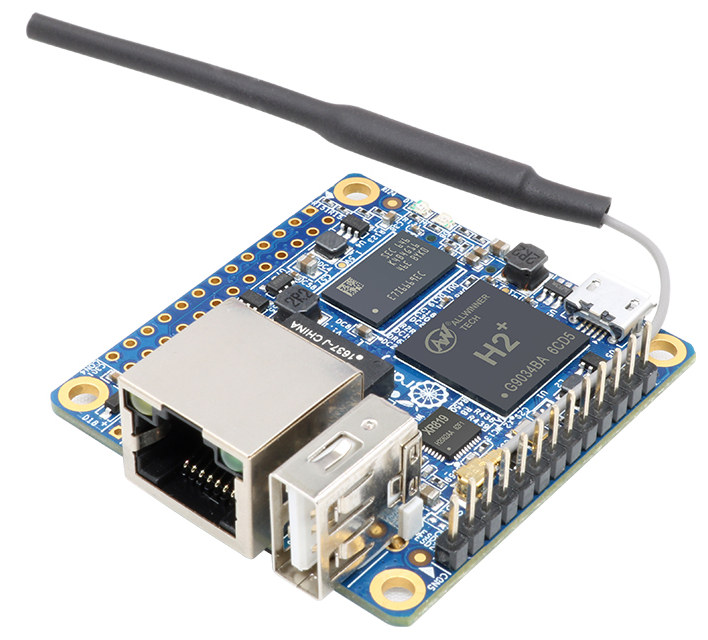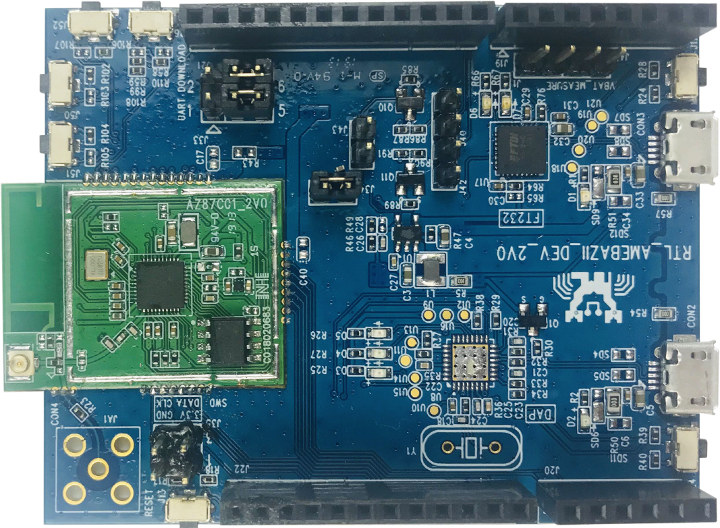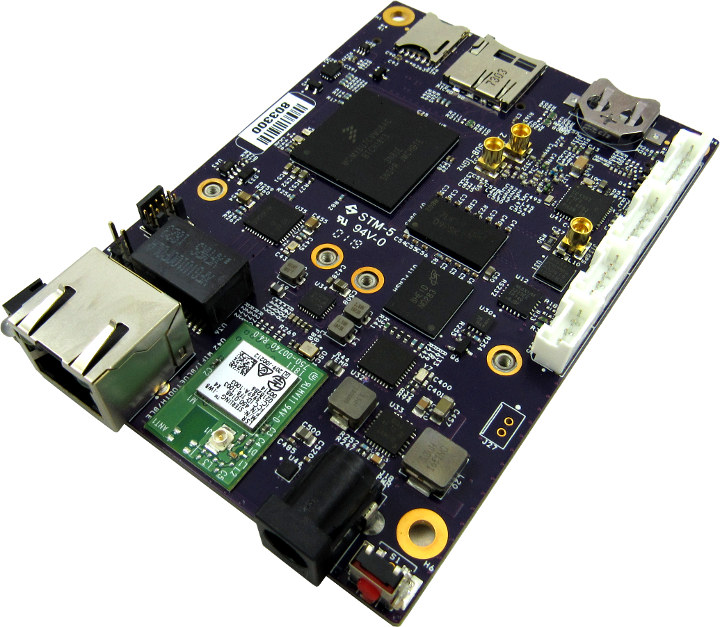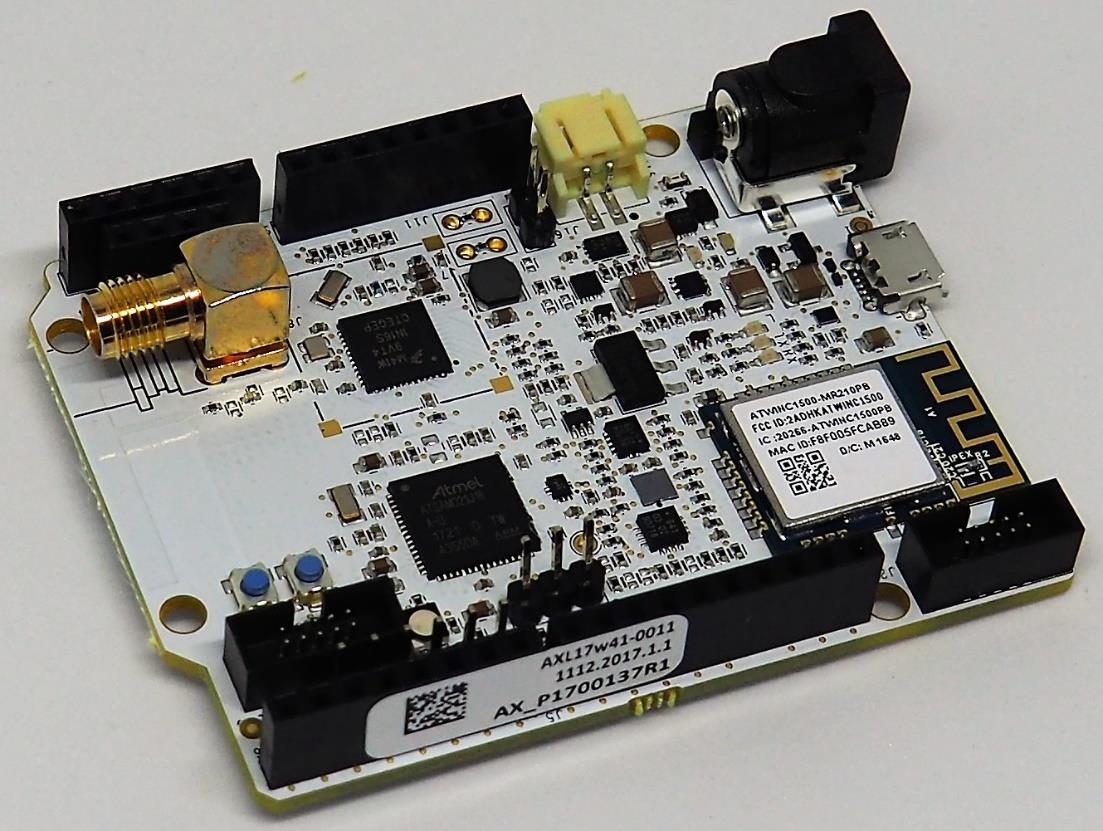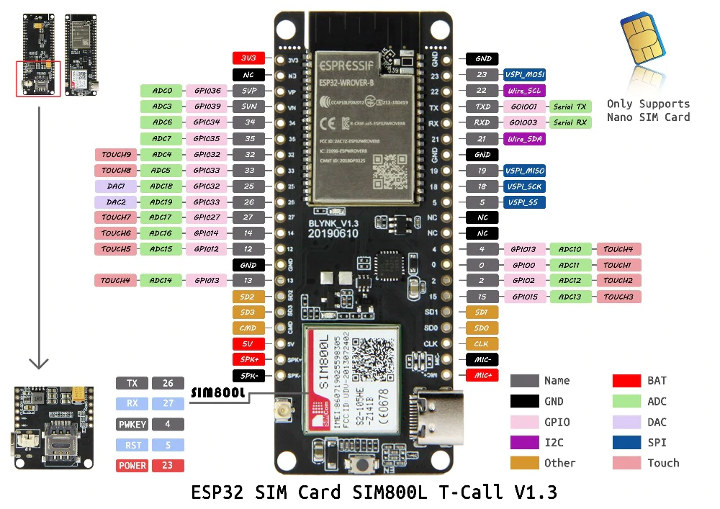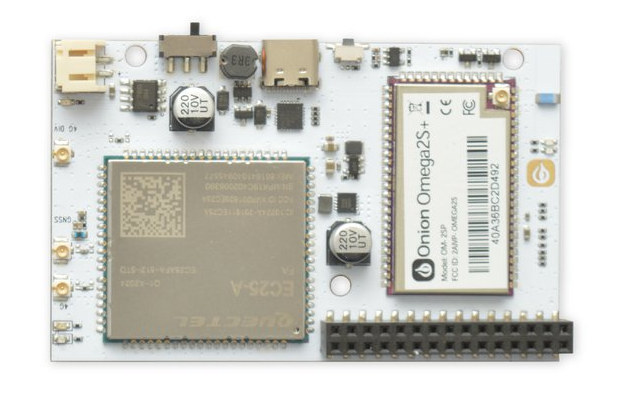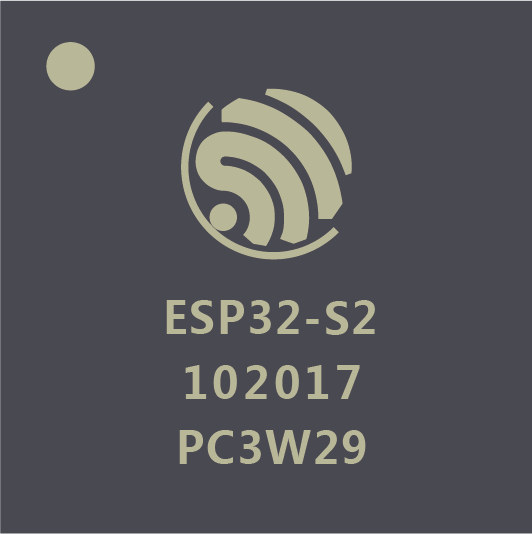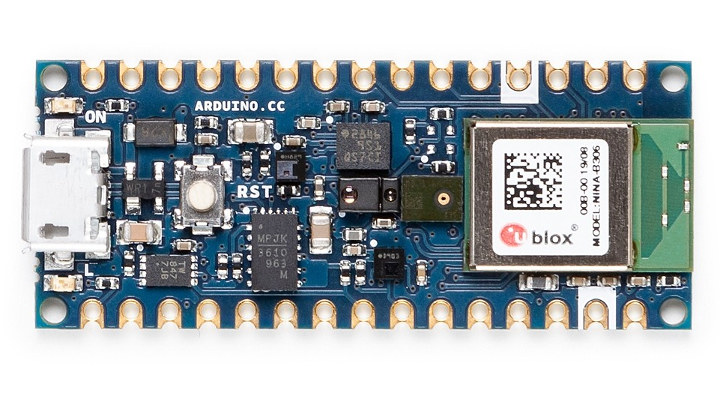Orange Pi Zero is a cool little Arm Linux board based on Allwinner H2+ processor for headless applications requiring WiFi and/or Ethernet that was first launched in November 2016 for $7 and up. It was not launched without controversy, as first users had various issues with the Allwinner XR819 WiFi module, but I had no such problem when I made an Orange Pi Zero Google Assistant smart speaker. Nevertheless, Shenzhen Xunlong Software is about to launch a newer version of the board – Orange Pi Zero LTS -, with the same specifications, but improvements in the design in order to reduce power consumption, and lower the board’s temperature. As the name implies, the company will commit to long term support (i.e. long term availability) for the board, but they did not tell me for how many years. Orange Pi Zero LTS v1.5 specifications: SoC – Allwinner H2+ quad-core Cortex A7 […]
Ameba Z2 IoT Board Features Realtek RTL8720CM Armv8-M KM4 Secure Wireless MCU
In 2016 we discovered Realtek Ameba wireless microcontrollers combining an Arm Cortex-M3 core with WiFi connectivity, and that could potentially become an ESP8266 competitor with modules selling for as low as $2. But the solution never really took off, because it was about the same price as ESP8266, and the latter already had a solid software ecosystem and community. But RealTek has now introduced a new Ameba Z2 IoT development board powered by RTL8720CM microcontroller featuring an Armv8-M KM4 core clocked at 100 MHz. What’s an Arm KM4 core you may ask? Seeed Studio informed me Arm and RealTek worked together on the KM4 core, so it looks like a custom Armv8-M microcontroller. Ameba Z2 IoT Development Board Ameba Z2 (ZII) specifications: Wireless MCU – Realtek RTL8720CM single core Armv8-M KM4 core @ 100MHz with 4.2MB internal RAM, WiFi and Bluetooth radios Storage – 2MB external flash on module Connectivity […]
Gateworks Ventana GW5910 SBC Targets WiFi, BLE & Sub-1GHz IoT Gateways
Freescale/NXP i.MX6 based Gateworks Ventana single board computers have been around at least since 2013 and were initially targeting networking processing applications for the industry. They could be used into all sort of gateways with cellular or WiFi connectivity for instance, thanks to the presence of mini PCIe sockets. But the latest Gateworks Ventana GW5910 SBC does not exclusively relies on mini PCIe cards for wireless connectivity, as it includes an onboard Laird Sterling 802.11b/g/n WiFi & Bluetooth module, as well as optional TI CC1352P dual-band Wireless MCU supporting Sub-1GHz and 2.4GHz RF, and an optional on-board u-blox GPS module, which should lower the total cost compared to solutions with mini PCIe cards. Ventana GW5910 specifications: SoC – NXP i.MX6 Dual Core Arm Cortex-A9 SoC Processor @ 800MHz System Memory – 512MB DDR3-800 SDRAM Storage – 256MB Flash System Memory, microSD card slot, mSATA socket Connectivity Gigabit Ethernet Port Onboard […]
Arduino Compatible ASME TIGER Board Supports Thread on NXP Kinetis KW41Z WiSoC
The new Arrow ASME Tiger board is the latest addition to the ASME line up, with an eye towards IoT hardware prototyping. The board carries two MCUs for different types of development depending on the operators need. The board is Thread and WiFi ready, and the Tiger is also Arduino compatible. The MCU’s are as follows: The ATSAMD21J18A-64 Ultra-low-power microcontroller using the 32-bit ARM Cortex-M0+ processor. The WiSoC is the KW41Z which is an ultra-low-power, highly integrated single-chip device that enables Bluetooth® low energy (BLE) v4.2 and IEEE® 802.15.4 RF connectivity for portable, extremely low-power embedded systems. The working unit is for very low power applications. The integrated balun reduces system cost and board area, and the sensors are plentiful and easy to access. You’ll find a user guide (PDF), as well a bootloader and sample code on Github. Specifications for the SMART SAMD21 Memory 256KB in-system self-programmable Flash 8KB […]
$15 TTGO T-Call Board Combines ESP32 WiFi & Bluetooth SoC with SIM800 GPRS Module
LilyGo has launched several TTGO boards usually based on Espressif ESP8266 or ESP32 over the years. Here’s another that could be useful if 2G cellular networks have not sunset in your country: TTGO T-Call. The new board combines ESP32 WiFi & Bluetooth WiSoC with SIMCom SIM800L GPRS module, and also happens to rely on a USB-C port for power and programming instead of the more common micro USB port on this type of hardware. TTGO T-Call board (BLINK_V1.3) specifications: Wireless Module – ESP32-WROVER-B based on ESP32 dual core Xtensa processor @ 240MHz with 520kB SRAM on-chip, 4MB QSPI flash, 8MB PSRAM Connectivity – WiFi 4 802.11 b/g/n (2.4 GHz) up to 150 Mbps Bluetooth 4.2 Classic + LE Cellular – 2G GSM/GPRS via SIMcom SIM800L module + Nano SIM card slot USB – 1x USB-C for power and programming (via CP2104) Expansion – 2x 21-pin headers with UART, SPI, SDIO, […]
Onion Omega2 LTE Board Combines WiFi, 4G LTE and GNSS Connectivity (Crowdfunding)
Onion has launched several compact OpenWrt WiFi boards for IoT projects over the years starting with their Onion Omega board in 2015, and the latest so far being Onion Omega2 Pro with a massive 8GB storage. The company has now launched a new model with 4G LTE connectivity called Onion Omega2 LTE, based on Omega2S+ module, and also featuring GNSS global satellite positioning capability. Onion Omega2 LTE specifications: WiFi Module – Onion Omega2S+ IoT computer module with MediaTek MT7688 MIPS CPU @ 580 MHz, 128 MB RAM, 32 MB storage Cellular and GNS Module – Quectel EC25 LTE Cat 4 modem that delivers 150 Mbps downlink and 50 Mbps uplink data rates, provided either for North America or global markets External Storage – MicroSD card slot up to 2 TB (once such cards become available…) Connectivity 2.4 GHz 802.11 b/g/n Wi-Fi 4 + onboard 2 dBi direction chip antenna & […]
Espressif ESP32-S2 Secure WiFi MCU Comes with an Xtensa LX7 Core @ 240 MHz
Espressif Systems has unveiled a new ESP32 WiFi MCU based on Cadence (previously Tensilica) Xtensa LX7 core instead of the usual Xtensa LX6 core(s). ESP32-S2 is powered by a single Xtensa LX7 core clocked at 240 MHz, supports Wi-Fi HT40 @ 2.4 GHz, and provides up to 43 GPIOs. Espressif ESP32-S2 specifications: CPU – Cadence Xtensa single-core 32-bit LX7 microcontroller @ up to 240 MHz, and ultra-low-power co-processor System Memory – 320 kB SRAM, external SPIRAM support up to 128 MB in total, 16 KB RTC memory Storage – 128 kB ROM, up to 1 GB of external flash support Connectivity Wi-Fi 802.11 b/g/n 1×1 transmit and receive with HT40 support with data rate up to 150 Mbps Support for TCP/IP networking, ESP-MESH networking, TLS 1.0, 1.1 and 1.2 and other networking protocols over Wi-Fi Support Time-of-Flight (TOF) measurements with normal Wi-Fi packets I/O & peripherals 43x programmable GPIOs 14x […]
Arduino Introduces Four New Nano Boards with WiFi, BLE, Sensors, and/or HW Crypto
The Maker Faire 2019 is now taking place in San Mateo, California, United States, and Arduino has made an habit of announcing new products during the events. This year is no different as the company has announced a new Nano Family with four boards: Arduino Nano Every powered by a Microchip ATMega4809 AVR microcontroller Arduino Nano 33 IoT with secure internet connectivity thanks to a U-blox ESP32 WiFi module and ATECC608A HW crypto chip Arduino Nano 33 BLE with Bluetooth connectivity via U-blox NINA B306 module based on Nordic Semi nRF52840 Bluetooth 5.0 chip Arduino Nano 33 BLE Sense with a design similar to Nano 33 BLE but some extra on-board sensors. Arduino Nano Every Specifications: MCU – Microchip ATMega4809 AVR microcontroller @ 20 MHz with 48KB flash, 6KB SRAM, 256 Bytes EEPROM USB to Serial via Microchip ATSAMD11D14A Arm Cortex-M0+ USB MCU 2x 15-pin expansion headers with GPIO, SPI, […]


